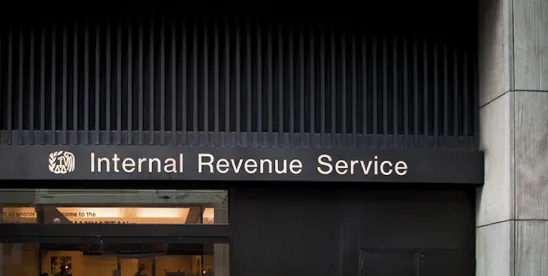On June 17, 2024, the IRS announced the formation of a dedicated group in the Office of Chief Counsel specifically focused on developing guidance on partnerships, which is expected to work with a new “passthrough working group” being established in the Large Business and International Division of the IRS. At the same time, Treasury and the IRS launched an attack on a specific partnership strategy involving so-called “basis bump” or “basis shifting” transactions involving related parties through a combination of guidance challenging the substance of such arrangements and declaring such arrangements to be “transactions of interest” that are subject to the strict disclosure requirements of the “reportable transaction” rules.1
A “basis bump” or “basis shifting” transaction, as described in the guidance, generally involves using sophisticated related party partnership structures to exploit various basis adjustment rules in the partnership provisions of the Internal Revenue Code, with the intended result of shifting the tax basis in partnership assets – either from non-depreciable property to depreciable property (increasing the tax depreciation or amortization deductions that may be claimed by the partners), or from assets the partners intend to keep to assets they intend to sell (thereby reducing taxable gain or increasing taxable loss, depending on the facts, on the properties the partners intend to dispose). The present attack on such transactions is limited to transactions involving “related” parties, which include generally corporations or other entities with more than 50% overlapping ownership, as well as certain family relationships (such as parents and their children).
Generally, the partnership basis adjustment statute and related Treasury regulations were crafted to match a partner’s tax basis in its interest in the partnership (“outside basis”) with that partner’s share of the partnership’s basis in its assets ( “inside basis”). Under these rules, a partnership generally will increase or decrease the basis of its assets when certain distributions of cash or property are made to a partner or when a partner transfers its interest in the partnership. For example, when a partnership distributes property with a low inside basis to a partner with a high outside basis, the rules allow the recipient partner to have a high basis in the distributed asset but require the partnership to reduce its basis in other assets.
These rules are intended to work in situations in which the partners are unrelated parties dealing with each other at arms-length. In those circumstances, a partnership and its various partners can be expected to bargain over the tax consequences of the distribution and the tax benefits – or burdens – resulting from the basis adjustment. Such bargaining is arguably much less likely when the parties are related.
The announced effort to combat these related party basis adjustment transactions has three parts. The first prong consists of proposed regulations identifying certain types of basis adjustment transactions as “transactions of interest.” This means that the transactions will need to be specifically disclosed to IRS under the reportable transaction rules. These disclosure obligations apply to the partnership and the related party partners involved in the transactions, as well as to material advisors, including any person who promoted the transaction and the accounting and law firms who provided tax advice in connection with the transaction. This will be a controversial part of the new rules because disclosure would be retroactive and apply to any transaction in which a taxpayer is still receiving a benefit.
The second prong of the attack is a revenue ruling in which the IRS states that the “economic substance” doctrine applies to disallow the benefit of the partnership basis adjustments otherwise allowable under the tax law where the transaction among related parties was devoid of economic purpose or substance. The revenue ruling, which is effectively the position the IRS intends to assert in any litigation over these transactions, described three situations in which purported partnership basis adjustments will be disregarded and notes, in all three situations, that enhanced 20%-40% penalties for undisclosed noneconomic substance transactions would apply.
The third prong is a notice announcing Treasury and the IRS’s intent to issue proposed regulations governing related party partnership basis adjustments. In general, these rules to be proposed will not permit either the partnership or a related party partner to receive the benefit of an increase in basis. The notice announces that, broadly, the proposed regulations are expected to address the required method of accounting for basis in related party partnership transactions and rules for determining taxable gain or loss on the disposition of basis adjusted property. The proposed regulations will also expand the scope of transactions to include those involving tax-indifferent parties (including tax-exempt organizations and parties with tax attributes that make them tax-indifferent). This last aspect of the proposed regulations suggests that potentially affected taxpayers who may not necessarily be subject to the immediate effects of the new guidance may nevertheless wish to consider whether they have entered into other arrangements that might be brought into scope by future proposed regulations. Additionally, other proposed regulations will address the treatment of partnerships that are owned by members of a consolidated group of corporations. Those regulations are intended to adopt a “single entity” approach that could extend beyond basis adjustment transactions.
- The guidance was issued in various official publications: see Notice 2024-54 (June 17, 2024), announcing the intention to publish propose regulations, available at https://www.irs.gov/pub/irs-drop/n-24-54.pdf; REG 124593-23 (June 17, 2024), proposing regulations to treat the transactions discussed here as “transactions of interest,” available at https://www.govinfo.gov/content/pkg/FR-2024-06-18/pdf/2024-13282.pdf; Rev. Rul. 2024-14 (June 17, 2024), ruling on the application of the economic substance doctrine to three scenarios relating to the transactions discussed here, available at https://www.irs.gov/pub/irs-drop/rr-24-14.pdf; and IR 2024-21 (June 17, 2024), and IR-2024-166 (June 17, 2024), announcing all of the above and the formation of new IRS teams, available at https://www.irs.gov/newsroom/irs-announces-new-steps-to-combat-abusive-use-of-partnerships-agencys-focus-intensifies-as-new-guidance-closes-loopholes-worth-tens-of-billions. ↩︎






 />i
/>i

